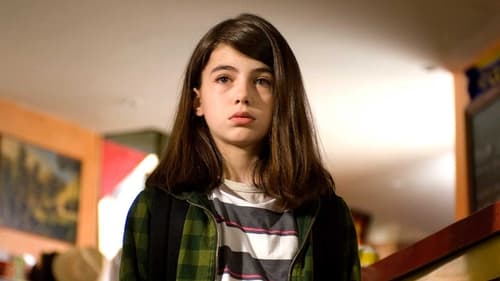
Editor
A few months after May '68, Robert, a graduate of the Ecole Normale Supérieure and a far-left activist, decides to get a job at Citroën as a line worker. Like other comrades, he wants to infiltrate the factory to rekindle the revolutionary fire, but the majority of workers no longer want to hear about politics. When Citroën decides to pay back the Grenelle Agreements by requiring workers to work 3 hours overtime per week for free, Robert and some others see the possibility of a social movement.

Editor
A portrait of the filmmaker's 99-year old grandmother.

Editor
A day in the life of director Boris Lehman: he wanders from cafe to bookshop, cinema to museum, writer to musician, and into the storeroom of the film archive... He celebrates his birthday in an alleyway, with a friend, and finishes his journey with an escapade to Bruges and a stroll by the North Sea. The camera plays dirty tricks and the sound recorder gets carried away, to the point that both are clearly telling Boris to stop filming. Yet he persists…

Editor
This distinctly personal journey into the artistic possibilities of independent film is not to be missed. Jonas Mekas, Jean-Pierre Gorin, Robert Kramer and many other visionaries and mavericks of the silver screen – as well as a book seller, a critic and a psychoanalyst – discuss what cinema has meant to them, what it is and what it could be and, implicitly, how it has changed over the 18 years in which this film was shot. Director Boris Lehman leads the charge, drawing in moments of absurdist humour and inventive camera work; he keeps things raw and spontaneous. His encounters with the now much-missed Jean Rouch and Stephen Dwoskin are particularly touching and stand testament to their personal playfulness and candour. An engaging, absorbing, epic odyssey of a movie.

Editor
The story of my hair can be told in two lines. My hair was long and black. It has turned white. It hasn't been cut since 1982, almost thirty years ago. Story of my Hair is a journey, both in space and in time. Anyone looking for truths, whether geographical, scientific or historical, will be disappointed. After looking at real events and real places the film very soon distances itself from them, preferring poetry and fiction. In his own fashion the auteur has combined the story of Samson and Delilah, the journey of those condemned to the death camps, the science of hair and a few thoughts about the meaning and fragility of life.

Editor
Like many of her classmates, 12 year old tomboy Juliette has a crush on Mrs. Solenska, a teacher distinguished by stylish attire and an uninhibited, provocative classroom demeanor. Juliette's fascination turns into all-consuming obsession, forcing revelations from both the girl and her teacher.

Editor
Portrait of Richard Kenigsman by Boris Lehman.

Editor
Trying to describe oneself is a movie about representation. How it is possible, through film, to describe oneself and describe others. With the camera as mirror and third eye. At first, a collage-like combination of letter-writing, investigation and journey, something between documentary and feature film. Finally, a portrait of Boris Lehman from 1989 to 1995, part II of BABEL.

Editor

Editor
The dialogue is based on the Gospel according to St John. The apostles are played by friends (the disciples) of Boris Lehman, most of them movie-makers, filmed in front of the last house still standing opposite the new buildings of the European Union. Judas is played by Claudio Pazienza and Christ by Boris Lehman. The film was shot in a matter of hours on a Sunday morning, with an incredible decor in a street that had been razed to the ground by property developers, just before the police arrived.

Editor
The man carrying his body, his reels of film, his bag and his old Nikon, is Boris Lehman, he's also Sisyphus, Jesus Christ, and Ixion as told by Alfred Jarry in La Chandelle Verte. An essay on heaviness and lightness. The carrying man would like to fly, vanish into thin air, into light. When he meets another machine-man, who carries electronic pictures, his dream will come true.

Editor
Adrienne is not my mother. She is not Jewish. I met her five years ago, at Edouard’s, where I’d gone to ask my friend to lend me a dinner jacket for the premiere of my film “Life Lessons”. She came to see the film and we began to meet often (Boris Lehman).

Editor
Through many photographs, he tells the story and allows his story to be told by those photographed. This is where the brilliant documentary reversal takes place.








